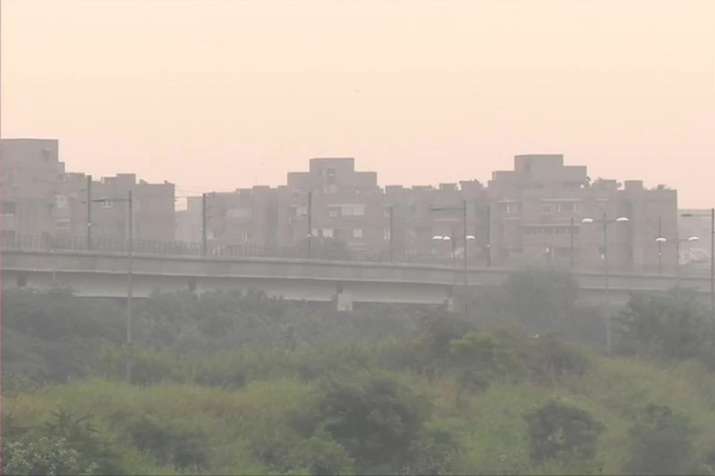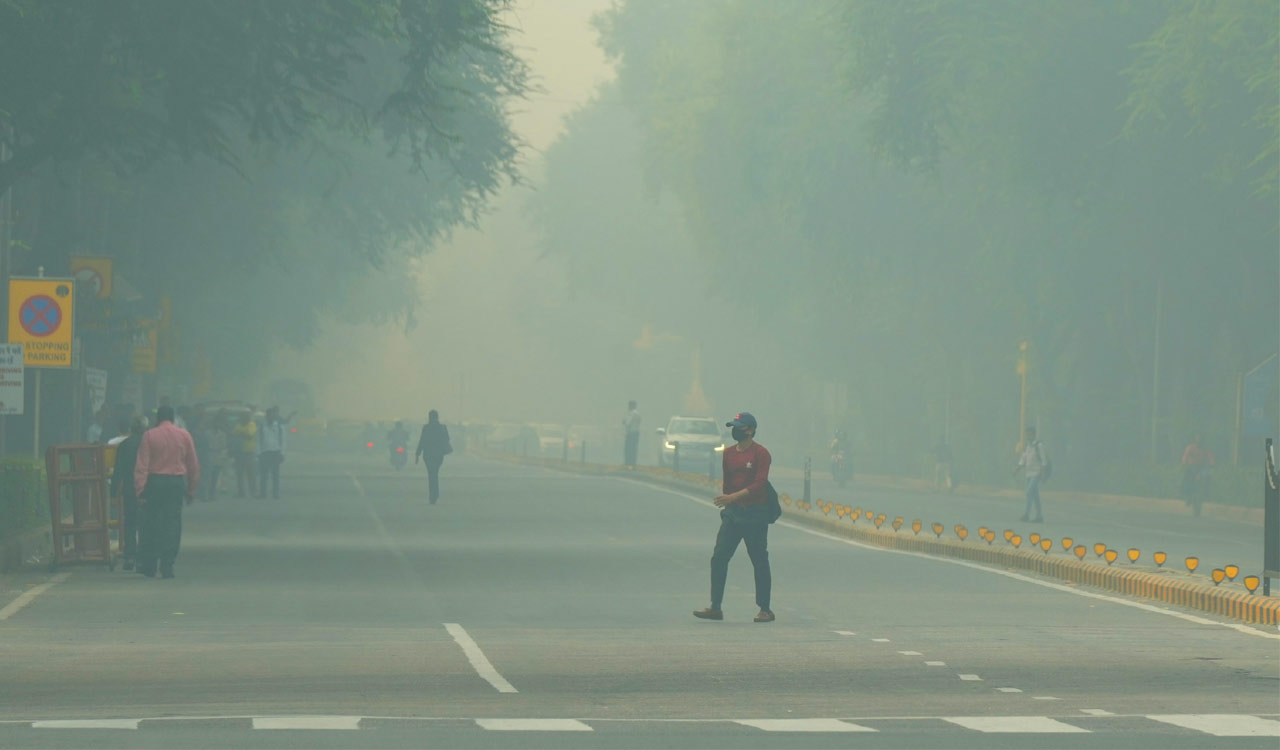Delhi NCR stays under ‘severe’ air quality; schools shut, cloud over cricket match

Delhi NCR stays under ‘severe’ air quality; schools shut, cloud over cricket match
The persistent severe air quality conditions in Delhi, characterized by a thick layer of smoke and haze, underscore the critical need for immediate and sustained measures to address the pressing issue of air pollution. The hazardous levels of pollution pose a severe threat to public health, making it imperative for authorities to prioritize effective strategies to mitigate the harmful impact on the residents’ well-being.
Given the recurring nature of this environmental challenge, concerted efforts are required to implement comprehensive policies and initiatives aimed at curbing pollution levels and improving air quality. This may include measures such as stringent enforcement of emission regulations, promotion of cleaner energy sources, and the implementation of sustainable urban planning practices. Additionally, public awareness campaigns and community engagement can play a crucial role in fostering a collective commitment to tackling this critical issue.

Urgent and coordinated action from relevant stakeholders is crucial to not only alleviate the immediate health risks associated with the current air quality crisis but also to establish sustainable long-term solutions that safeguard the well-being of the population and ensure a healthier and cleaner environment for all.
The data from the Central Pollution Control Board underscores the critical and alarming levels of air pollution in various regions of Delhi, with many areas registering air quality index (AQI) readings well above the hazardous threshold. The recorded figures, including those over 500 in certain areas, signify an immediate and severe threat to public health and well-being.

With AQI levels reaching 464 in Aya Nagar, 486 in Dwarka Sector 8, 479 in Bawana, 480 at the Indira Gandhi International Airport, 410 in ITO, 463 in Jahangirpuri, 426 in Lodhi Road, and 475 in Siri Fort, it is evident that the city is grappling with a critical environmental crisis. Such high pollution levels warrant urgent and concerted efforts from the authorities and the community to implement stringent measures aimed at curbing pollution sources and improving the overall air quality.
It is imperative for the concerned authorities to take immediate action and enforce effective policies and initiatives to mitigate the impact of air pollution, safeguard public health, and ensure a safer and healthier environment for the residents of Delhi. Collaborative efforts and sustained interventions are crucial to address this pressing issue and pave the way for a more sustainable and environmentally conscious future.

The data from the Central Pollution Control Board (CPCB) highlighting the severe air quality in Noida, a key city within the National Capital Region (NCR), underlines the widespread nature of the air pollution crisis affecting the entire region. With most monitoring stations in Noida registering an air quality index (AQI) exceeding 400 by 6 am, it is evident that the city is grappling with hazardous pollution levels, posing a significant risk to public health and well-being.
Similarly, Gurugram’s recording of severe air quality on Sunday further emphasizes the urgent need for collaborative and immediate measures to address the concerning levels of pollution in the region. These critical findings underscore the pervasive nature of the environmental challenge, necessitating coordinated efforts and prompt interventions to mitigate the impact of air pollution and safeguard the health and safety of the residents in Noida, Gurugram, and the wider NCR.
It is crucial for authorities and stakeholders to prioritize comprehensive strategies and sustainable solutions to combat the sources of pollution and improve air quality in the region. Public awareness and participation, along with the implementation of stringent regulations and cleaner technologies, are vital to tackling this pressing issue and ensuring a healthier and sustainable living environment for the communities in Noida, Gurugram, and the entire National Capital Region.
The decision by the Delhi government to close all primary schools temporarily due to severe air pollution underscores the urgency of addressing the pressing environmental crisis and safeguarding the health of the younger population. By implementing precautionary measures such as school closures, authorities aim to minimize the exposure of children to the harmful effects of polluted air and ensure their safety and well-being.
The additional measures introduced in Delhi, Noida, Gurugram, and Faridabad are indicative of the concerted efforts to tackle the escalating pollution levels in the National Capital Region (NCR). These proactive steps demonstrate a commitment to mitigating the adverse impact of air pollution and prioritizing the health and safety of the residents in the affected areas.
The potential impact of the severe pollution on the upcoming Cricket World Cup match between Bangladesh and Sri Lanka in Delhi is a matter of concern, highlighting the need for careful consideration and planning to ensure the well-being of the players and spectators. It is essential for the authorities to assess the situation closely and implement appropriate measures to address the potential challenges posed by the high levels of pollution during the event.
Effective collaboration between relevant stakeholders, along with the implementation of comprehensive pollution control measures and sustainable solutions, is crucial to mitigating the impact of air pollution and ensuring a safe and healthy environment for all residents and visitors in the National Capital Region.



